In this article
View 8 More +One of the Sennenhund-type dogs developed in the Swiss Alps, the Bernese Mountain Dog is a large breed that originated in Bern, Switzerland. They were developed from Roman Mastiffs as alpine herding dogs and general farm dogs, as well as draft animals.
Now, the Bernese Mountain Dog is in use as a herding or livestock guardian dog, competition dog, or beloved family pet. These dogs have a lot of excellent traits for a variety of pet owners, but there are some things to be aware of before you bring one home.
Breed Overview
Height:
23–27.5 inches
Weight:
70–115 pounds
Lifespan:
7–10 years
Colors:
Black, rust, and white; black, tan, and white; black and rust; black and white; rust and white
Suitable for:
Active families, those looking for a low-shedding dog
Temperament:
Single owners, active owners, active families, cold climates
Bernese Mountain Dogs are good all-around farm dogs, but one of their unique historical uses was as a draft animal. With their imposing size and strength combined with a calm temperament, Bernese Mountain Dogs are natural at pulling small carts or wagons. This use arose in Switzerland, but these dogs are often trained to give children rides or pull carts in parades. Carting competitions are common for this breed.
Bernese Mountain Dog Characteristics

Bernese Mountain Dog Puppies
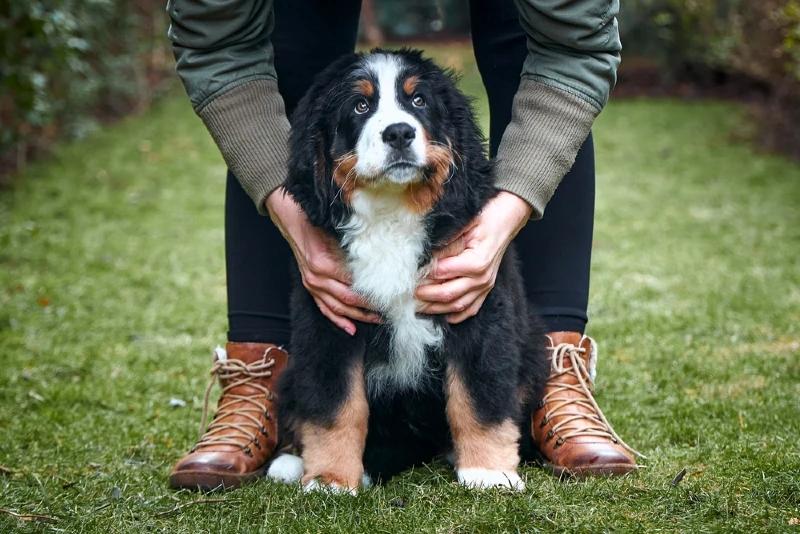
Although they’ve been around for a while, Bernese Mountain Dogs are among the rarer breeds. They are growing in popularity, however, so more breeders are cropping up throughout the U.S. Since these dogs are prone to certain health problems, including joint issues and possible behavioral problems with irresponsible breeding, it’s crucial to work with an ethical breeder committed to pairing healthy, well-tempered dogs.
You may find Bernese Mountain Dogs in rescues or shelters. People may surrender these dogs if they grow too big or require more work than they can provide. You’re less likely to come across Bernese pups in a shelter environment, however.

Temperament & Intelligence of the Bernese Mountain Dog
Bernese Mountain Dogs are bred to be docile, aloof, confident, and well-mannered. As livestock guardians, they’re supposed to hold back unless they need to intervene, such as protecting a herd from a wolf or protecting an owner from an attack. These dogs get along well with families and other pets, but they require a lot of exercise and enrichment to stay happy and avoid destructive or nuisance behaviors.
Are These Dogs Good for Families? 👪
Bernese Mountain Dogs are calm and gentle with children, leading to their use as cart animals. They are affectionate and tolerant, even allowing children to climb on them. However, it’s important to teach your kids to behave appropriately with these dogs, due to their size, and always supervise interactions.
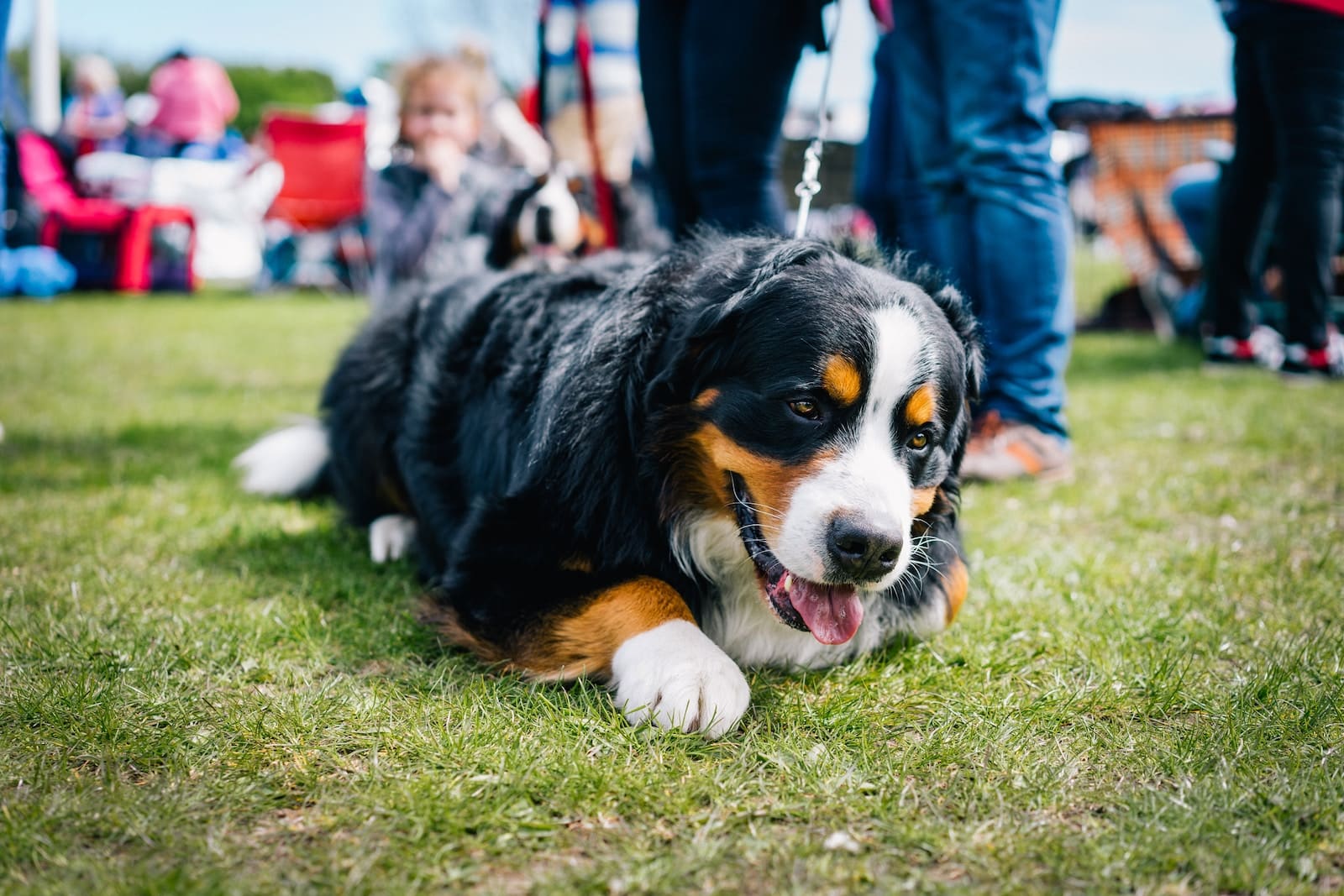
Does This Breed Get Along With Other Pets?
Bernese Mountain Dogs were developed as farm dogs and tend to be relaxed around livestock, other dogs, cats, farm birds, and all types of animals. These gentle giants aren’t inclined to cause conflict or chase and kill small animals like some other working breeds. Individuals can have different temperaments, however, so it’s best to supervise interactions until you know all your pets get along.

Things to Know When Owning a Bernese Mountain Dog:
If you’re considering a Bernese Mountain Dog, here’s everything you need to know before bringing one home.
Food & Diet Requirements 🦴
Bernese Mountain Dogs need high-quality food to support every stage of their development and encourage healthy growth. It’s important not to overfeed these dogs, as excess weight can contribute to joint problems and other health problems. Be sure to consult with your vet about your dog’s body condition and diet.
Exercise 🐕
Bernese Mountain Dogs are outdoor dogs bred to patiently watch cattle, only moving quickly in response to a threat. They need some activity and exercise, but they lack the endurance of some of the hunting and working breeds. You don’t need to spend hours exercising the Bernese Mountain Dog, but they will need regular walks or playtime to avoid boredom and problem behaviors. These dogs make great hiking partners or canine competitors in agility, herding, obedience, or rally sports.
Training 🎾
Bernese Mountain Dogs are intelligent and eager to please. Start with obedience and socialization training early to help a puppy grow into a well-adjusted adult. Despite their size, Bernese Mountain Dogs are gentle, sensitive dogs that don’t respond well to harsh training methods. Positive reinforcement engages the dog’s natural desire to please and gets better results.

Grooming ✂️
As one of the Sennenhund types, Bernese Mountain Dogs are designed to thrive in cold climates. They have a thick double coat with a wooly undercoat and thick topcoat. They shed all year round and seasonally, so they require regular brushing to remove loose hair. Bernese Mountain Dogs also need their nails trimmed, their ears cleaned, and their teeth brushed as needed.
Health and Conditions 🏥
Bernese Mountain Dogs are prone to the same conditions as other large breeds, including bloat and cancer. However, they have an unusually high rate of musculoskeletal conditions, including arthritis, hip dysplasia, cruciate ligament rupture, and osteochondritis, which often strike at a young age and affect mobility. Otherwise, these dogs may have problems with their vision and heart.
- Parasites
- Vision problems
- Arthritis
- Heart problems
- Musculoskeletal problems
- Degenerative myelopathy
- Bloat
- Cancer

Male vs. Female
There’s no significant difference in the temperament of the male vs. the female Bernese Mountain Dog. The males are usually larger, which can add to your food and vet expenses with an already large breed. It’s important to spay or neuter your Bernese Mountain Dog to prevent some problem behaviors and eliminate the risk of reproductive cancers, such as mammary cancer, in this vulnerable breed.

3 Little-Known Facts About the Bernese Mountain Dog
1. They Were Integral to the Cheese Industry
During their work as farm and cart dogs, Bernese Mountain Dogs were used to transport carts of milk and cheese for dairy farmers. They eventually earned the local nickname, “Cheese Dogs.”
2. They Earned Official Recognition in 1907
Bernese Mountain Dogs began showing locally in the early 1900s, leading to a group of Burgdorf breeders founding the first breed club: the Schweizerische Durrbach-Klub. The American Kennel Club first recognized the Bernese Mountain Dog in 1937 within the Working Group.
3. There’s a Famous Bernese Mountain Dog in Michigan
Stella, a Bernese Mountain Dog in Plymouth, Michigan, is a local celebrity. She has two restaurants named after her, Stella’s Black Dog Tavern and Stella’s Trackside, as well as a book titled. “Introducing Stella.”

Final Thoughts
A loyal and gentle giant, the Bernese Mountain Dog has a long history as a steadfast and versatile farm worker. While they can adapt to different home environments, it’s best for a Bernese Mountain Dog to have an owner who can commit to their need for cold-weather outdoor adventures and regular exercise.
Featured Image Credit: Alexander Dummer, Pexels
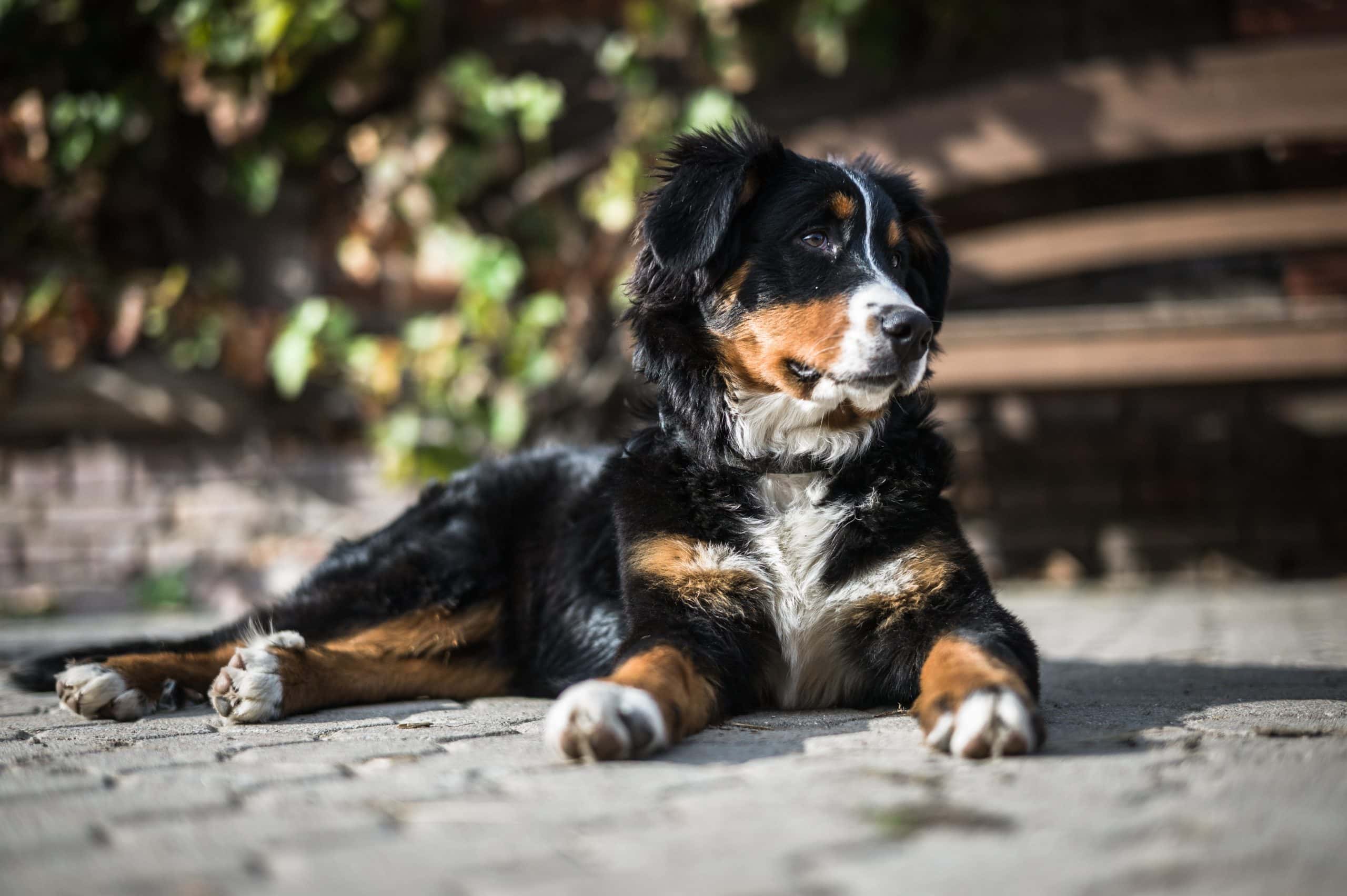



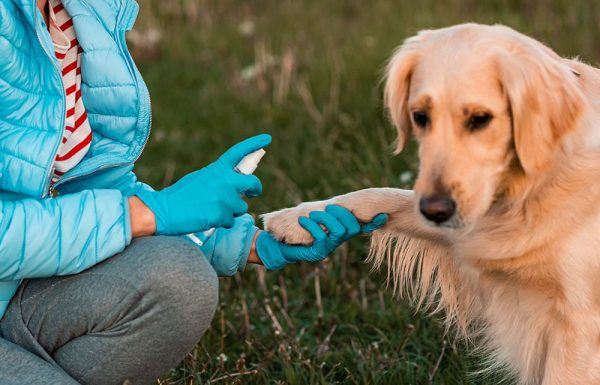





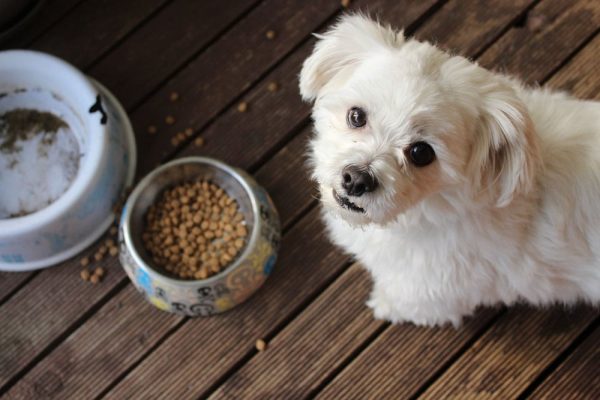











2 Responses
I have a Bernese mountain dog that’s 3and a half years old. He will be 4 on December 1. I really don’t know what to do with him, he doesn’t want to eat dog food, and not much of anything else except our food.